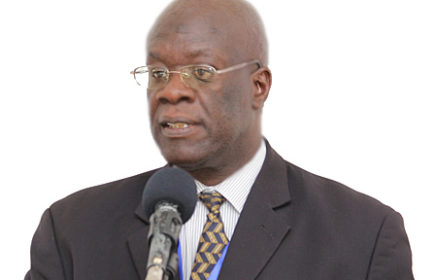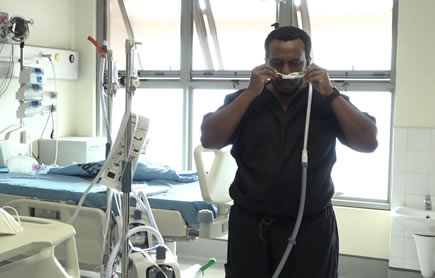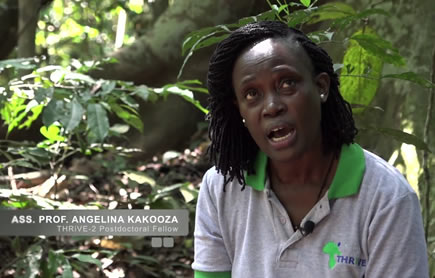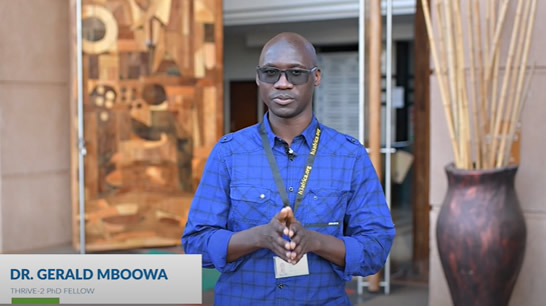Training Health Researchers into Vocational Excellence (THRiVE) was established in 2009 as a regional network of research excellence, including some of the best universities and research institutes in East Africa with support from two leading UK universities.

We have built a robust network that has led to strong and productive collaborations in research, training and supervision, with more than 300 joint publications between THRiVE partners since 2010. Our network has also made concerted efforts to improve institutional capacity in research administration and management.
Nelson K. Sewankambo MBChB, MSc, M.MED, FAAS, FRCP, LLD (HC), former Dean of Makerere University Medical School, Uganda, a past Principal Makerere University College of Health Sciences and a Professor of internal medicine. In the last 18 years he focused on advancement of medical education and research capacity development. He is a fellow and President of the Uganda National Academy of Sciences, a Vice President of the Network of African Sciences Academies (NASAC) and Vice President of the Accordia Global Health Foundation. He trained at Makerere University as a medical doctor, specialized in internal medicine and later graduated in Clinical Epidemiology at McMaster University in Canada. He received a fellowship of the Royal College of Physicians in London; an Honorary Doctorate Johns Hopkins University, School of Public Health; a Grand Silver Medal, Karolinska Institutet, Sweden; a Doctor of Laws, Honoris Causa, McMaster University, and Honorary Fellowship of London School of Hygiene and Tropical Medicine. He is also an external affiliate of the US Institute of Medicine (US Academy of Medicine) and a fellow of African Academy of Sciences.
During his Deanship many educational transformations and innovations were started at the College of Health Sciences. Dr. Sewankambo initiated many partnerships between Makerere University College of Health Sciences with other institutions in Uganda and abroad including successful research capacity building consortium (THRiVE) involving seven African institutions (4 universities and 3 research institutes) and two universities in the UK, and provided leadership for an Africa wide initiative for Strengthening Research Capacity in Africa (ISHReCA). With NIH funding, he was involved in starting a national MEPI consortium of Uganda Universities (MESAU) to jointly address the country’s health professional education needs. He is the Coordinator of the IDRC funded International Chairs Initiative that focuses on the evaluation of knowledge translations platforms. He was the regional Coordinator of Supporting Use of Research Evidence for Policy (SURE Project) which aimed to promote the use of evidence in health policy decisions. He has participated in several key global health initiatives, councils and committees, including the FAIMER Board and WHO Task Force on Health Systems Research.
He has led teams of academicians composed of experts in Europe, North America and Africa to develop and manage a very successful model for strengthening a medical school in the developing world ÔÇô the Infectious Diseases Institute at Makerere. He was founder Principal Investigator in Uganda for the internationally re-known Rakai Health Sciences Program (formerly Rakai Project) where he continues to be an active researcher/investigator and has contributed to the large volume of scientific publications in peer reviewed journals together with providing mentorship and development of many Ugandan junior and mid-level researchers.
He steered the development of an East African effort that led to an internationally acclaimed institutional brokerage mechanism for linking research to policy and action to The REACH Policy Initiative headquartered in Arusha under the East African Community.
Dr. Sewankambo has not restricted application of his knowledge and skills to the Uganda scene but has also contributed significantly to the international environment including the Global Forum for Health Research, Nuffield Council Working Party on Ethics of Health Care Related Research in Developing Countries, International Clinical Epidemiology Network, International Joint Learning Initiative on Human Resources for Health and Development, FAIMER and CIGI the African Initiative on the impact of climate change: mitigation and adaptation. As co-chair of the education/production subcommittee of the initiative he contributed to the landmark report entitled Human Resources for Health, Overcoming the Crisis which had a major influence on WHO and its recent 2006 report (Together for Health) which focus on the global crisis of health workers and the need for urgent action in order to enhance health of populations. He was also a contributor to the chapter on how to build strong education and training systems of the Global Health Workforce Alliance Lord Nigel Crisp Report 2008: Scaling up education and training for health workers.
“To empower African Institutions to become Research Engines for Health Innovations and Evidence-based Healthcare Practices and Policies’




